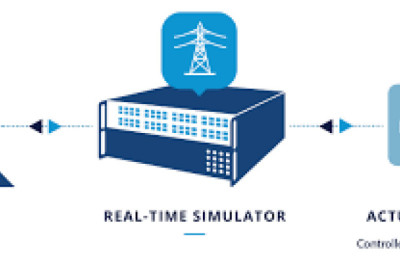views
If you've ever been captivated by the thrilling world of remote-controlled (RC) cars, you're not alone. These miniature marvels have been capturing the hearts of enthusiasts for years. One of the most critical aspects that drive the excitement and performance of RC cars is their batteries. In this article, we're going to take an in-depth journey into the realm of RC car batteries, exploring their types, maintenance, and the power they bring to the hobby.
1. Introduction
RC cars have come a long way from being simple toys. They are now advanced machines that deliver an adrenaline-pumping experience to hobbyists and enthusiasts. Among the core components that contribute to their performance, batteries play a pivotal role.
2. The Heart of RC Performance: Batteries
Think of RC car batteries as the beating heart of these miniature vehicles. They provide the energy needed to propel the car forward, tackle challenging terrains, and perform jaw-dropping stunts. The type of battery you choose can significantly impact your car's speed, runtime, and overall performance.
3. Types of RC Car Batteries
- Nickel-Metal Hydride (NiMH) Batteries
NiMH batteries are known for their reliability and affordability. They offer a decent balance between runtime and power output. While they might not provide the sheer power of some other options, they are an excellent choice for beginners and casual users.
- Lithium-Polymer (LiPo) Batteries
LiPo batteries are the go-to choice for many RC enthusiasts. They offer a remarkable power-to-weight ratio, translating to blistering speeds and longer runtimes. However, they require careful handling and charging due to their sensitivity.
- Lithium-Ion (Li-ion) Batteries
Li-ion batteries also offer high energy density and longer life compared to NiMH batteries. They strike a balance between power and safety, making them suitable for both beginners and experienced users.
4. Factors Affecting Battery Performance
- Capacity
Battery capacity, measured in milliampere-hours (mAh), determines how long your RC car can run on a single charge. Higher capacity batteries generally offer longer runtimes.
- Voltage
Voltage directly influences the speed and power of your RC car. Higher voltage batteries can deliver more power, resulting in increased speed and acceleration.
- Discharge Rate
The discharge rate, indicated in "C," represents how quickly a battery can release its energy. Higher discharge rates are ideal for high-performance applications but may require additional care.
5. Choosing the Right Battery for Your RC Car
Selecting the right battery depends on your preferences and usage. If you're a beginner, NiMH batteries offer simplicity and cost-effectiveness. For those seeking ultimate performance, LiPo batteries are the way to go.
6. Battery Maintenance Tips
Proper battery maintenance ensures longevity and consistent performance. Always store your batteries in a cool, dry place and avoid overcharging or over-discharging them.
7. Enhancing Battery Life
To extend your battery's lifespan, consider investing in a quality battery charger and balancer. Balancing the cells in your battery pack helps prevent overcharging or over-discharging of individual cells.
8. Unleashing Power: Upgrading Batteries
As you gain experience and want more from your RC car, consider upgrading your battery. A high-performance battery can unlock new levels of speed and excitement.
9. Charging Techniques for RC Car Batteries
Follow manufacturer guidelines when charging your batteries. Many modern chargers come with multiple charging modes to suit different battery types, ensuring safe and efficient charging.
10. Safety Precautions
Handling RC car batteries requires caution. Always use the right charger and charging settings, and avoid puncturing or damaging the battery casing.
11. The Future of RC Car Batteries
As technology advances, we can expect even more efficient and powerful batteries for RC cars. Improved energy storage and safety features will likely shape the future of this exciting hobby.
12. Conclusion
RC car batteries are the unsung heroes behind the exhilarating performance of these mini vehicles. Whether you're a casual hobbyist or a dedicated racer, understanding the nuances of RC car batteries can greatly enhance your experience.
13. FAQs
Q1: Can I use LiPo batteries in any RC car?
A: While LiPo batteries offer exceptional performance, not all RC cars are compatible with them. Check your car's specifications before upgrading.
Q2: How often should I charge my NiMH battery?
A: It's best to charge your NiMH battery after each use and avoid letting it fully discharge.
Q3: Are higher C ratings always better?
A: Not necessarily. Higher C ratings provide more power output, but they also increase the risk of overheating and damaging the battery.
Q4: Can I mix different battery types in a single RC car?
A: Mixing battery types can lead to imbalances and potential performance issues. Stick to a single type for optimal results.
Q5: What's the significance of balancing my LiPo battery?
A: Balancing ensures that all cells in your LiPo battery pack have similar charge levels, promoting safer and more efficient operation.











